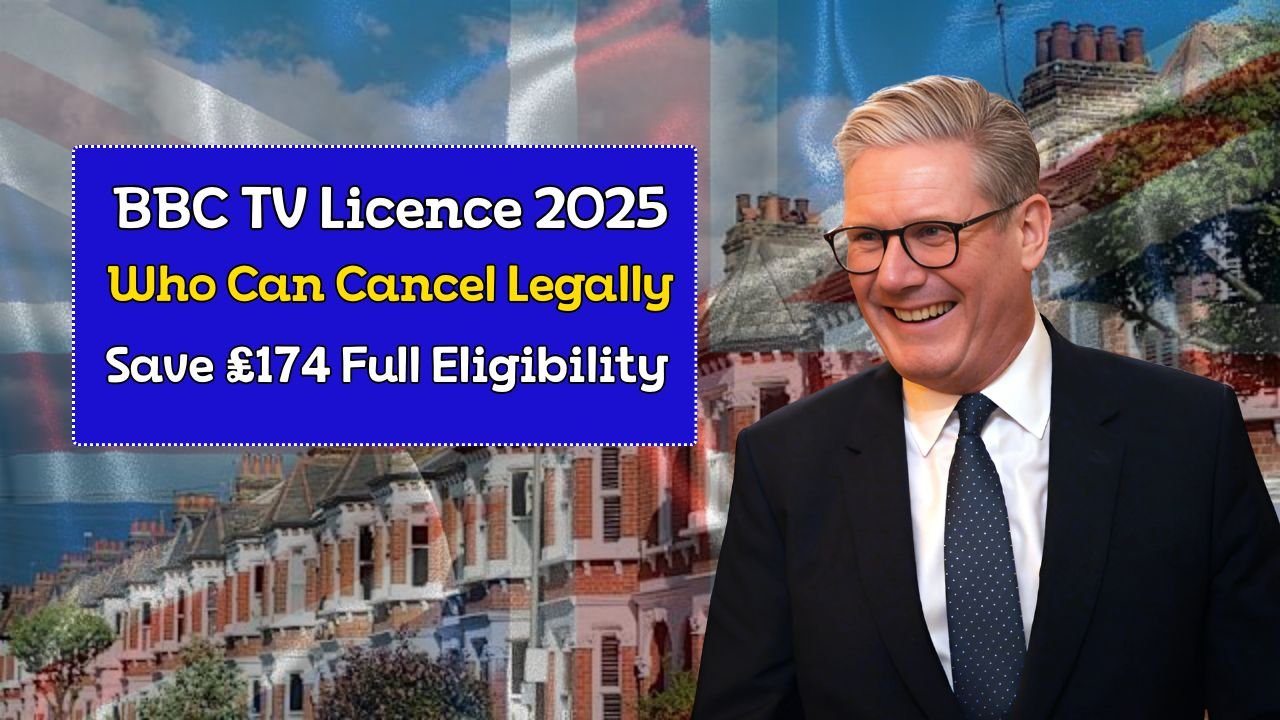Follow Us on WhatsApp
Get the latest updates directly on WhatsApp – motivation, news & more!
The BBC TV Licence has been a long-debated topic in the United Kingdom. Every year, millions of households pay the annual fee, which currently stands at £174. While many see it as a fair way to fund public broadcasting, others feel the cost is a burden. What many people do not realise is that not everyone is legally required to pay for a TV Licence. If you fall into one of the exempt categories, you can cancel your licence and legally save the full amount.
This guide will explain who qualifies for exemption, how the rules work in 2025, and the proper steps to cancel without running into problems.
What is the BBC TV Licence?
The TV Licence is a legal requirement for households that watch or record live television broadcasts in the UK, regardless of the channel. It also applies to those using BBC iPlayer. The fee helps fund BBC services, including TV, radio, and online platforms.
In 2025, the cost of a full colour TV Licence is £174 per year. While this might not sound huge to some, for many households struggling with the rising cost of living, saving this amount could make a real difference.
Who Can Legally Cancel a TV Licence?
Not everyone needs a TV Licence. The law is clear about certain exemptions, which means you could stop paying without breaking any rules. Below are the main groups who qualify.
People Over 75 on Pension Credit
If you are over the age of 75 and receive Pension Credit, you are entitled to a free TV Licence. This scheme was reintroduced to support pensioners with limited income. If you meet the criteria, you can apply for a free licence and stop paying the £174 fee.
People Who Do Not Watch Live TV or BBC iPlayer
A common misconception is that you must pay the licence just for owning a television. That is not true. If you only use your TV for streaming services like Netflix, Disney+, or YouTube (and do not watch live channels or BBC iPlayer), you do not need a licence.
Households who rely purely on on-demand platforms can legally cancel their licence and save money. However, you must be careful not to accidentally watch live programmes, as this could still count as a violation.
Blind or Severely Sight Impaired Individuals
People who are registered blind or severely sight impaired can apply for a discounted TV Licence. The concession reduces the fee by 50%, which means instead of paying £174, you would pay £87 per year.
While this is not a complete exemption, it still allows eligible individuals to cut the cost significantly.
People Over 75 in Care Homes
Residents in care homes who are over the age of 75 may qualify for a special arrangement. In this case, the care home manager usually handles the application. This means elderly residents do not need to pay for an individual licence, as the home’s communal licence covers it.
Students Living Away From Home
Students are often unsure about whether they need a licence. If you are living in halls of residence and only watch TV on battery-powered devices such as laptops or phones, you may not require a licence. However, if the device is plugged into the mains, the rules are different. Students who only stream on-demand content like Netflix or Amazon Prime without watching live TV can avoid paying the fee.
Over-75s Not on Pension Credit
It is important to note that over-75s who are not receiving Pension Credit no longer get an automatic free licence. This change created controversy when it was introduced, but the current policy remains in place for 2025. If you are in this group, you must continue paying unless you meet one of the other exemption criteria.
How to Cancel Your TV Licence
If you believe you qualify for exemption, you cannot simply stop paying. You must contact TV Licensing to cancel officially. Here’s how the process works:
- Visit the TV Licensing website and fill out the cancellation form.
- Provide evidence, such as proof of Pension Credit, care home residency, or sight impairment.
- If cancelling because you only use on-demand streaming, you may need to sign a declaration confirming that you do not watch live TV or BBC iPlayer.
- Return any TV Licence reminder letters you receive, as they often continue until your exemption is confirmed.
Common Misunderstandings
Many households continue paying unnecessarily because of confusion around the rules. Some believe that just owning a television means you must pay, but this is not the case. Others think cancelling is risky, but if you genuinely meet the exemption criteria, you are protected by law.
The BBC does carry out checks, but if you have officially declared your situation, you will not face any penalties.
Why Knowing Your Rights Matters
With rising energy bills, rent increases, and grocery costs, every pound counts. Saving £174 a year could help with other essential expenses. By understanding who is legally exempt, households can make informed decisions and avoid paying for something they do not need.
Final Thoughts
The TV Licence continues to be a controversial subject, and reforms are often discussed in Parliament. For now, the rules in 2025 remain as they are, with exemptions in place for certain groups.
If you are over 75 and on Pension Credit, blind, living in a care home, or do not watch live TV or BBC iPlayer, you may be able to cancel your licence legally and save the annual fee. The key is to apply correctly, provide the right documents, and keep your records safe.
By checking whether you qualify, you might join thousands of households across the UK who are saving £174 this year.




